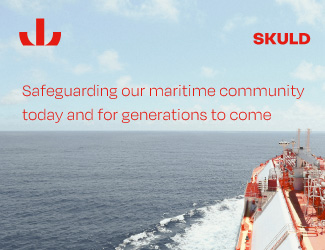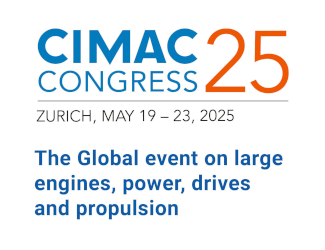Dimitris Theodorou, Director Emergency Response of salave group Resolve Marine, talks exclusively to HANSA about long-term effects of the Corona crisis, challenges and chances
for salvors arising from the use of alternative fuels and the market consolidation
Ships are becoming more and more specialised – buzzwords are electrification, hybrid technology, LNG, hydrogen, fire protection etc. To what[ds_preview] extent do you expect this development to have an impact on the operational salvage business?
Dimitris Theodorou: As these fuel types increase in usage and the technology employed to power newer vessels, Resolve will see response scenarios where various fuels (LNG, Hydrogen) materials are involved not just as an SMFF response but as bunkering/environmental operations. As an opportunity, our Academy has a new Director, Chauncey Naylor, who has recently joined our team coming from Williams Fire and Hazard Control in Texas where his experience working with LNG translates into firefighting training that encompasses the challenges presented from the LNG/Hydrogen fuels and response for the larger more sophisticated vessels.
What impact will all this have on training and hiring of personnel?
Theodorou: These developments have already impacted us through our internal response team training, OPA SMFF regulatory compliance, and Firefighting Academy. Our training facilities are instructing both our salvage crews as well as marine authorities, ship crew, and military/municipal firefighting/EMT teams.
Port States become increasingly restrictive in their acceptance of dangerous or hazardous substances. This could also affect damaged ships and wrecks. Is this already affecting your work?
Theodorou: Ports are becoming more restrictive because the regulatory categorization is becoming increasingly detailed as more substances are categorized as hazardous/dangerous. This is requiring response organizations to increase their efforts ensuring safe removal with extra care for the environment. Hazardous material, waste management, waste handling, and waste disposal are becoming an integral part of salvage operations and we try to address this in every project in cooperation with the local authorities and in compliance with all international rules and regulations. In many cases as a part of our response planning, we include an environmental expert as a member of our response team.
How do you intend to maintain or expand your market position, do you expect any market consolidation?
Theodorou: Resolve is fortunate to have an experienced and talented group of salvors who are mentoring the younger team members both on the job and through the Academy. In addition to Resolve’s owned and managed global network, we are developing trusted relationships with several highly experienced companies ensuring a local presence and prompt response in anywhere. Historically, Resolve’s strategy has focused on growing the company organically except for a few strategic, geographical acquisitions which opened up new markets to us. Five to seven years ago, the salvage market began to decline and was ripe for consolidation. Two of the largest salvors, Svitzer and Titan merged to create Ardent. Since then the market has nearly halved in size and, as a result, Ardent along with Mammoet Salvage has gone out of business. Resolve would expect to see a new entrant before any more consolidation.
What do you expect to be the next game changer?
Theodorou: Autonomous ships may present some opportunities in the short term, but in the long term, these vessels will present unique challenges and opportunities for response and recovery teams. Our strength in regulatory compliance for OPA 90 SMFF, APC-Alaska, and SPRO China represents our involvement in the maritime industry and the world around us. Whatever the next big game-changer is to impact the maritime salvage industry, the opportunities and challenges presented will impact a broad geographic and industrial sector impacting in areas where they are not prepared. Being involved with industry associations and strong communications with partners is important but managing an agile organization will make the difference between success and failure.
Do you expect a long-term effect of the Corona-crisis on your business?
Theodorou: The Corona-crisis has exposed areas of concern and change processes that are required now and will be needed in the long-term which have been evident on some of our recent projects where we had to overcome unexpected restrictions and heightened safety protocols. What is evident from this and any crisis is the need to be prepared creating internal channels and processes that can react efficiently to unexpected challenges. Never have companies been faced with events impacting normal business operations as quickly as the recent pandemic. What we will expect going forward is to have processes in place that allow us to respond internally so we can continue to respond externally.
Interview: Michael Meyer















